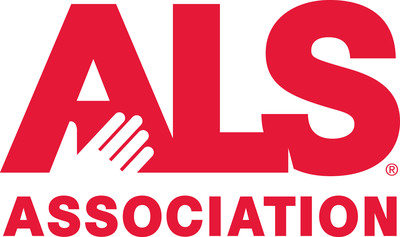The ALS Association Funded Study Finds ALS Protein Clearance Is Key To Neuron Survival
WASHINGTON, June 29, 2014 /PRNewswire-USNewswire/ -- In work supported by The ALS Association, researchers have shown that increasing the clearance of misfolded protein from neurons improves their survival. The study was published today in the journal Nature Chemical Biology.

ALS (amyotrophic lateral sclerosis), also known as Lou Gehrig's disease, is a progressive neurodegenerative disease that affects motor neurons (nerve cells) in the brain and the spinal cord. Eventually, people with ALS lose the ability to initiate and control muscle movement, which often leads to total paralysis and death within two to five years of diagnosis. There is no cure and limited life-prolonging treatments for the disease.
The research was led by Sami Barmada, M.D., Ph.D., at Gladstone Institutes in San Francisco, under the direction of Associate Director and Senior Investigator Steven Finkbeiner, M.D., Ph.D., who is also a professor of neurology and physiology at the University of California, San Francisco. Dr. Barmada is currently an assistant professor in the Department of Neurology at the University Of Michigan Medical School.
In both ALS and a related disease, called frontotemporal dementia (FTD), a protein called TDP-43 accumulates and clumps together, but it has been unclear whether this accumulation was toxic, and whether clearing it from the cell could be therapeutic. In the current study, researchers used a robotically controlled microscope to track individual motor neurons derived from people with ALS, and watched as TDP-43 accumulated and was cleared.
The researchers found that motor neurons were highly sensitive to the level of accumulated TDP-43 and that individual cells differed in their ability to clear it. They also used novel compounds to increase that clearance by stimulating a cell protein recycling program called autophagy (aw-TOFF-ah-gee). Stimulation of autophagy increased survival of the motor neurons, and of astrocytes, a central nervous system cell important for neuron survival.
"This study shows us the importance of the autophagy pathway in maintaining motor neuron health," said Lucie Bruijn, Ph.D., M.B.A., Chief Scientist for The Association. "These findings will allow us to focus more on this pathway as we search for new therapeutic targets."
Funding for this research was provided in part by The ALS Association's Golden West Chapter.
About The ALS Association
The ALS Association is the only national non-profit organization fighting Lou Gehrig's Disease on every front. By leading the way in global research, providing assistance for people with ALS through a nationwide network of chapters, coordinating multidisciplinary care through certified clinical care centers, and fostering government partnerships, The Association builds hope and enhances quality of life while aggressively searching for new treatments and a cure. For more information about The ALS Association, visit our website at www.alsa.org.
Logo - http://photos.prnewswire.com/prnh/20131211/MM32178LOGO
SOURCE The ALS Association
Help employers find you! Check out all the jobs and post your resume.
